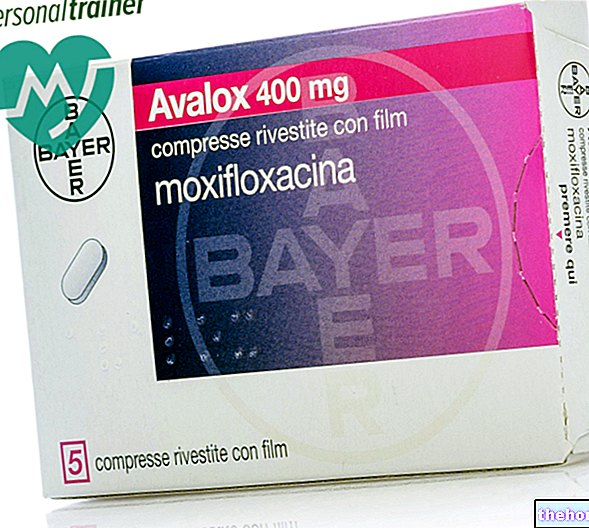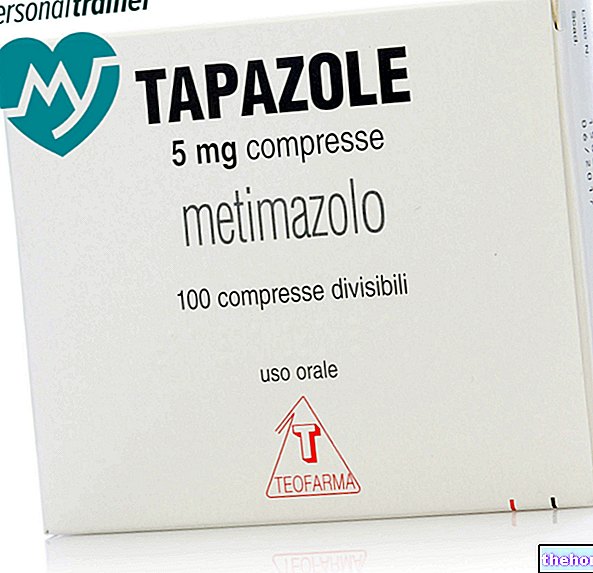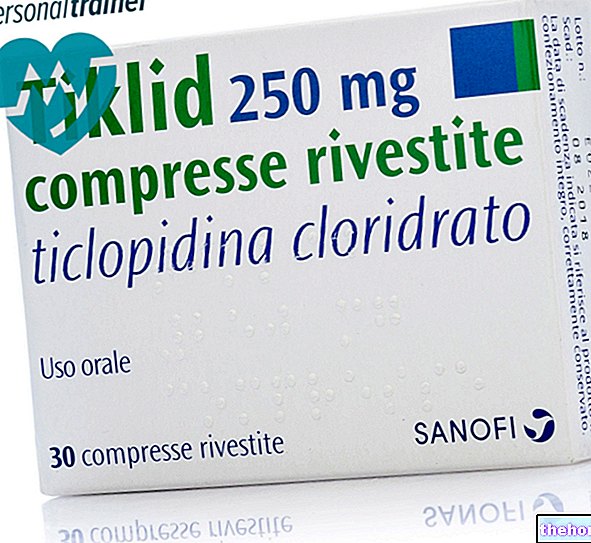Active ingredients: Pyridostigmine (Pyridostigmine bromide)
MESTINON 60 mg tablets
MESTINON 180 mg prolonged-release tablets
Why is Mestinon used? What is it for?
MESTINON contains the active substance pyridostigmine bromide, an inhibitor of the enzyme acetylcholinesterase. This enzyme inactivates acetylcholine, a substance necessary for muscle stimulation.
MESTINON is indicated for the treatment:
- myasthenia gravis, a serious disease that affects the muscles and manifests itself as weakness, fatigue and can lead to paralysis;
MESTINON 60 mg tablets is also indicated for the treatment:
- intestinal atony (lack of bowel movements causing intestinal obstruction).
Talk to your doctor if you don't feel better or if you feel worse.
Contraindications When Mestinon should not be used
Do not take MESTINON
- if you are allergic to pyridostigmine bromide or any of the other ingredients of this medicine (listed in section 6);
- if you are allergic to medicines similar to pyrodostigmine;
- if you have a "mechanical obstruction of the stomach or intestines" (gastrointestinal tract) due for example to. intestinal adhesions, intestinal or extra-intestinal tumors, stomach or intestine hernias);
- if you suffer from spastic bronchitis (inflammation of the bronchi and trachea with difficulty in breathing);
- if you suffer from bronchial asthma (a disease of the airways manifested by coughing, wheezing, shortness of breath and chest tightness);
- if you suffer from stomach ulcer (a stomach injury);
- if you suffer from thyrotoxicosis (a condition which causes an increase in the hormones produced by the thyroid gland in the body);
- if you suffer from heart failure (a severe heart disease);
- if you have had a heart attack;
- if you suffer from bradycardia (reduced heart rate, i.e. the number of heart beats per minute);
- if you have diabetes (a "blood sugar change);
- if you have had stomach or bowel surgery;
- if you are going to have surgery with anesthesia (see "Other medicines and MESTINON").
Talk to your doctor if you don't feel better or if you feel worse.
Precautions for use What you need to know before taking Mestinon
Talk to your doctor or pharmacist before taking MESTINON if you have:
- a lung disease called chronic obstructive pulmonary disease (COPD);
- arrhythmias (altered heart rate, i.e. the number of heart beats per minute;
- a recent occlusion of the coronary arteries (blood vessels of the heart);
- hypotension (low blood pressure);
- vagotonia (particular condition of functional balance of the nervous system);
- peptic ulcer (stomach injury);
- epilepsy (seizures);
- Parkinson's (a disease of the nervous system);
- Hyperthyroidism (increased thyroid activity);
- Renal failure (impaired kidney function).
No information is available on the administration of MESTINON to patients with contact lenses.
Interactions Which drugs or foods can modify the effect of Mestinon
Tell your doctor or pharmacist if you are taking, have recently taken or might take any other medicines.
Consult your doctor or pharmacist if you are taking the following medicines:
- methylcellulose (a medicine used to treat constipation);
- atropine and hyoscine (medicines that modify the contractility of the muscles);
- pancuronium and vecuronium (medicines that relax the muscles);
- morphine (a pain reliever);
- barbiturates (medicines used to induce sleep);
- ether (an anesthetic).
Warnings It is important to know that:
Pregnancy and breastfeeding
If you are pregnant or breast-feeding, think you may be pregnant or are planning to have a baby, ask your doctor or pharmacist for advice before taking this medicine.
The safety of using MESTINON during pregnancy has not been established
. Administration during pregnancy should only be considered if the expected benefit to the mother outweighs the risk to the fetus, therefore in cases of real need and under direct medical supervision.
The safety of using MESTINON while breastfeeding has not been established.
Even if only negligible amounts of pyridostigmine are excreted in breast milk, attention should be paid to possible side effects in infants.
Driving and using machines
Avoid driving or operating machines if you experience undesirable effects such as reduced pupil diameter (miosis) and difficulty in focusing images (accommodative defects) during treatment with MESTINON or if you have "unsatisfactory symptom control of your disease (myasthenia). serious).
MESTINON 60 mg tablets contain lactose
If you have been told by your doctor that you have an intolerance to some sugars, contact your doctor before taking this medicinal product.
Dosage and method of use How to use Mestinon: Dosage
Always take this medicine exactly as your doctor or pharmacist has told you.
If in doubt, consult your doctor or pharmacist.
Your doctor will work out which dose and frequency is best for you.
MESTINON 60 mg tablets
- Treatment of myasthenia gravis: the recommended dose is: 1 - 3 tablets, 2 - 4 times a day. Your doctor may decide to increase this dose according to the severity of the disease.
- Treatment of intestinal atony: the recommended dose is: 1 tablet, every 4 hours.
MESTINON 180 mg prolonged-release tablets
- Treatment of myasthenia gravis: the recommended dose is: 1 - 3 prolonged-release tablets, 2 times a day. Your doctor will decide the most suitable dose for you according to the severity of the disease and whether your health improves as a result of taking this medicine.
If you have kidney disease your doctor will decide on the most suitable dose. If you have a severe illness, your doctor may prescribe appropriate tests to tailor the treatment that is best for you.
Mestinon tablets should be taken with water (half a glass or a glass of water).
The prolonged-release tablet can be divided into equal parts, but it must not be divided further as this would compromise the delayed release of the active substance.
If you forget to take MESTINON
Do not take a double dose to make up for a forgotten dose.
If you have any further questions on the use of this medicine, ask your doctor or pharmacist.
Overdose What to do if you have taken too much Mestinon
In case of accidental ingestion / intake of an overdose of MESTINON, notify your doctor immediately or go to the nearest hospital, as the symptoms you may experience may be similar to those of your disease.
The symptoms it can manifest are:
- muscle hypotonia (muscle wasting) paradoxical symptoms (worsening of symptoms for which it is being treated)
- reduction in the number of heart beats per minute (bradycardia), which can go as far as stopping the beats (heart failure)
- increased number of heart beats per minute (tachycardia)
- reduction in blood pressure up to severe reduction in heart function
- narrowing of the bronchi which causes severe breathing difficulties (bronchospasm)
- excessive saliva production (drooling)
- tearing
- excessive mucus production from the nose (runny nose)
- excessive sweating
- redness of the skin
- lack of strength (adynamia)
- reduction in pupil diameter (miosis) and difficulty in focusing images
- dizziness
- He retched
- diarrhea
- nausea
- incontinence (loss of bladder and anus control)
- tenesmus (painful spasm of the anus and bladder with a constant feeling of having to defecate or urinate)
- pulmonary edema (fluid in the lungs)
- muscle cramps
- abdominal cramps
- fasciculations (rapid and involuntary contractions of the muscles)
- increased peristalsis (increased bowel motility)
- increased bronchial secretions
- general weakness up to paralysis
- apnea (stopping breathing)
- brain anoxia (lack of oxygen to the brain)
- agitation
- confusion
- dysarthria (speech disorder)
- nervousness
- irritation
- visual hallucinations
- convulsions
- coma.
Side Effects What are the side effects of Mestinon
Like all medicines, this medicine can cause side effects, although not everybody gets them.
The following undesirable effects have been reported and reported with the following frequencies:
Rare (may affect up to 1 in 1,000 patients)
- Skin rash (rash).
Frequency not known (frequency cannot be estimated from the available data)
- Hypersensitivity (allergy) to the drug;
- Syncope (transient loss of consciousness);
- Miosis (reduction in the diameter of the pupil);
- Increased lacrimation;
- Disorders of accommodation (difficulty in focusing images);
- Arrhythmias (altered heart rate) such as bradycardia (decreased number of beats), tachycardia (increased number of beats), atrioventricular block (conduction defect of the heart);
- Angina Prinzmetal (chest pain);
- Redness;
- Hypotension (decrease in blood pressure),
- Increased bronchial secretion associated with bronchial constriction (narrowing of the caliber of the bronchi);
- Nausea;
- He retched;
- Diarrhea;
- Increased peristalsis (motility of the intestine);
- Sialorrhea (increased salivation);
- Abdominal discomfort;
- Abdominal cramps
- Increased sweating;
- Hives (skin rash);
- Increased muscle weakness;
- Fasciculations (rapid and involuntary contractions of the muscles);
- Tremors
- Muscle cramps
- Muscle hypotonia (decreased muscle tone);
- Bladder tenesmus (urge to urinate)
Reporting of side effects
If you get any side effects, talk to your doctor or pharmacist. This includes any possible side effects not listed in this leaflet. You can also report side effects directly via the national reporting system at www.agenziafarmaco.gov.it/it/responsabili. By reporting side effects you can help provide more information on the safety of this medicine.
Expiry and Retention
Keep this medicine out of the sight and reach of children.
MESTINON 180 mg prolonged-release tablets
Do not store at temperatures not exceeding 25 ° C. Protect from moisture.
MESTINON 60 mg tablets
This medicinal product does not require any special storage conditions.
Do not use this medicine after the expiry date which is stated on the carton after EXP. The expiry date refers to the last day of that month.
Do not throw any medicines via wastewater or household waste. Ask your pharmacist how to dispose of medicines you no longer use. This will help protect the environment.
Deadline "> Other information
What MESTINON contains
MESTINON 60 mg tablets
- the active ingredient is pyridostigmine bromide 60 mg
- the high components are precipitated silica, starch, talc, magnesium stearate, lactose (see section "MESTINON tablets contains lactose").
MESTINON 180 mg prolonged-release tablets
- the active ingredient is pyridostigmine bromide 180 mg
- the other components are carnauba wax, precipitated silica, zein, magnesium stearate, tribasic calcium phosphate.
Description of the appearance of MESTINON and contents of the packs
MESTINON 60 mg tablets
It comes in white tablets, packed in amber glass bottles with screw cap of 20 tablets.
MESTINON 180 mg prolonged-release tablets
It comes in yellow-gray tablets, packed in amber glass bottles with screw cap of 50 tablets.
Not all pack sizes may be marketed.
Source Package Leaflet: AIFA (Italian Medicines Agency). Content published in January 2016. The information present may not be up-to-date.
To have access to the most up-to-date version, it is advisable to access the AIFA (Italian Medicines Agency) website. Disclaimer and useful information.
01.0 NAME OF THE MEDICINAL PRODUCT -
MESTINON®
02.0 QUALITATIVE AND QUANTITATIVE COMPOSITION -
MESTINON® 60 mg tablets.
One tablet contains:
Active principle: pyridostigmine bromide 60 mg.
MESTINON® 180 mg prolonged-release tablets.
One tablet contains:
Active principle: pyridostigmine bromide 180 mg.
03.0 PHARMACEUTICAL FORM -
Tablets. Prolonged-release tablets.
04.0 CLINICAL INFORMATION -
04.1 Therapeutic indications -
Myasthenia gravis. Mestinon 60 mg tablets can also be used in the treatment of intestinal atony.
04.2 Posology and method of administration -
MESTINON® 60 mg tablets
Myasthenia gravis: the posology must be adapted, both as regards the size of the single doses and as regards the number of daily doses, to the actual individual needs. As a general dosing scheme, 1-3 tablets of 60 mg, 2-4 times a day , to be increased in the most severe forms.
Intestinal atony: one 60 mg tablet every 4 hours.
MESTINON® 180 mg prolonged-release tablets
One to three Mestinon extended-release tablets twice a day. It is important to remember that the dosage and frequency of daily administration are related to the severity of the disease and the patient's response to treatment. The dosages cited must therefore serve as a reference and require individual adaptation to the individual needs of the patient. The dosage cited may be lower (it is possible to take half a prolonged-release tablet) or in specific cases be increased.
When switching from Mestinon 60 mg tablets to Mestinon 180 mg prolonged-release tablets it must be considered that the latter is no longer potent, but only long-acting (6-8 hours, in some cases even longer, instead of 2-4 hours The number of tablets taken as a single dose remains the same, while the prolonged-release tablets are taken at longer intervals over a 24 hour period.
(Example: A patient who has so far taken three Mestinon 60 mg tablets of the active substance six times a day (6x3x60 mg = 1080 mg / day) only receives three Mestinon 180 mg prolonged-release tablets twice a day (2x3x180 mg = 1080 mg / day)).
The use of adequate diagnostic tests is essential to adapt the dosage of Mestinon 180 mg prolonged-release tablets to the most serious pathological conditions. In some cases it is advisable to adjust the dosage in stable conditions.
Infections or other aggravating factors may require a change in the requirements of Mestinon 180 mg prolonged-release tablets necessary to control the disease. The attending physician should therefore be consulted immediately.
Method and duration of administration
The prolonged-release tablets are taken with a certain amount of liquid and have a central groove that allows them to fracture for the possible intake of half a tablet. The prolonged-release tablet must not be further divided, as otherwise the delayed release would be compromised of the active ingredient.
To compensate for a too short dosing interval or for an immediate need, it is possible to combine Mestinon 180 mg prolonged-release tablets with Mestinon 60 mg tablets.
(Example: a patient must take the last administration at 10 pm to ensure undisturbed sleep during the night. The prolonged-release tablets taken during the day (8 am - 10 pm) are only effective until 6 pm. The time interval from 6 pm at 10 pm it is covered with 60 mg tablets).
04.3 Contraindications -
The preparation must not be administered in case of mechanical occlusions of the gastrointestinal tract and urinary tract and in all pathologies attributable to hypertonia of the bronchial muscles such as spastic bronchitis, bronchial asthma and known hypersensitivity to anticholinesterases, to bromides or to any of the product components.
In the case of gastric ulcer, thyrotoxicosis, heart failure, myocardial infarction, the risks due to treatment with Mestinon must be carefully considered.
In patients with impaired liver function, periodic checks of liver function tests are required.
The preparation should not be administered in combination with depolarizing muscle relaxants such as suxamethonium.
Particular care should be taken when using Mestinon in patients with bradycardia, diabetes mellitus or who have undergone gastrointestinal surgery.
Since no satisfactory data are available on the use of Mestinon during pregnancy, the risk associated with not treating the disease must be carefully evaluated in comparison with that of taking the preparation during pregnancy.
Pyridostigmine can be secreted by the mammary glands and contained in breast milk. For this reason, you cannot breastfeed during treatment.
04.4 Special warnings and appropriate precautions for use -
Mestinon should be used with caution in bronchial asthma.
Due to the possibility of occasional manifestations due to individual hypersensitivity, anti-shock preparations or ampoules of atropine should always be readily available.
Medicines should not be kept within reach of children
04.5 Interactions with other medicinal products and other forms of interaction -
The action of morphine derivatives and barbiturates can be enhanced during treatment with Mestinon. The concomitant use of some antibiotics in general aminoglycosides or some anesthetics, in particular ether, can counteract the antagonistic action of Mestinon towards drugs non-depolarizing healers.
04.6 Pregnancy and breastfeeding -
See contraindications.
04.7 Effects on ability to drive and use machines -
Due to unsatisfactory symptom control of myasthenia gravis or parasympathomimetic effects, impairment of driving and use of machines cannot be excluded during overdose of Mestinon.
04.8 Undesirable effects -
Sweating, drooling, lacrimation, bronchial hypersecretion, nausea, vomiting, diarrhea, abdominal cramps (increased peristalsis), urge to urinate, fasciculation, tremors and cramps or muscle hypotonia may occur during therapy with Mestinon (see chapter overdose), "accommodation or, after taking high doses, bradycardia. Since these symptoms could be signs of a cholinergic crisis, the doctor should be consulted immediately in order to clarify the diagnosis. Treatment, in case of acute Mestinon intoxication (onset of parasympathomimetic effects) is the following: atropine sulfate sc, oral or im. In rare cases the appearance of skin rashes has been reported which disappear spontaneously when the drug is stopped. Hypersensitivity reactions may occur in predisposed subjects. No data on administration are available. of Mestinon in patients with contact lenses act.
04.9 Overdose -
In the event of an overdose of Mestinon, cholinergic crises may arise which occur mainly with marked muscle hypotonia (or increased muscle hypotonia in myasthenics). If this situation is not recognized promptly, there is a potential danger of death due to possible paralysis of the respiratory muscles. Bradycardia, paradoxical symptoms and tachycardia may be additional concomitant manifestations. The therapy in these cases consists in the immediate interruption of Mestinon or other cholinergic preparations and in the administration of 1- 2 mg of atropine sulphate by slow intravenous route.
After checking your heart rate, possibly repeat this dose after two to four hours.
The similarity of the myasthenic symptomatology with a cholinergic crisis caused by an overdose of the preparation requires the clarification of the diagnosis with appropriate tests, carried out in a suitable health environment.
Emergency procedures, symptoms and antidotes in case of overdose
Symptoms
Sialorrhea, lacrimation, rhinorrhea, sweating, skin redness, adynamia, myosis and accommodation disorders, dizziness, vomiting, incontinence, tenesmus, extreme bradycardia up to cardiac arrest, hypotension up to circulatory collapse, bronchospasm, pulmonary edema, occasional cramps.
Therapy
As a specific antidote for the treatment of parasympathomimetic effects arising during overdose or intoxication, it is recommended to use atropine sulphate, adjusting the dose to the need according to heart rate and pupillary dilation.
In the event of cardiac arrest, perform cardiac massage and artificial respiration with oxygen, and possibly use the equipment for assisted artificial respiration. Carefully check the volume and homeostasis of plasma electrolytes. In case of accommodation spasms administer atropine-based eye drops (checking intraocular pressure).
05.0 PHARMACOLOGICAL PROPERTIES -
05.1 "Pharmacodynamic properties -
Mestinon possesses cholinergic properties and belongs to the class of cholinesterase inhibitors; it is therefore a stimulant of the cholinergic nerve endings and of the motive plate. Among these substances Mestinon stands out for its good tolerability, manageability, stable and long-lasting maintenance of efficacy, and for the gradual reduction of the therapeutic effect. Reducing the frequency of drug administration facilitates the treatment of myasthenia gravis.
05.2 "Pharmacokinetic properties -
After oral administration, a maximum peak plasma concentration of the active substance is reached in 1.7 - 3.2 hours, depending on the concomitant food intake. The volume of distribution is 1.64 ± 0.24 L / kg, the plasma clearance is 0.65 L / kg / hour. The rate and rate of resorption demonstrate great variability between individuals. The bioavailability of pyridostigmine bromide was detected in healthy volunteers with values between 7.6% and 18.9%. In patients with myasthenia gravis the value may decrease to 3.3%. With intravenous administration the half-life is 1.53 hours, while with oral administration it can reach up to 3.3 hours. The dose-dependent elimination occurs partly as an unchanged active principle (up to 50%) and partly in the form of inactive metabolites following the renal route for 80-90% and the enteric route for approximately 7%.
In the prolonged-release tablet the active ingredient is enclosed in an insoluble structure to achieve the prolonged release. The inert substance carrying the active ingredient appears in the faeces. This does not mean that the active ingredient has not been completely absorbed.
05.3 Preclinical safety data -
The pharmacological properties of pyridostigmine are mostly determined by the cholinergic action caused by the inhibition of cholinesterase and by the complementary stimulating effect on the nicotinic n-cholinoreceptor. Failure to overcome the blood brain barrier explains the absence of toxic symptoms at the CNS level. The LD50 of pyridostigmine in rats is 3 mg / kg after intraperitoneal administration, while it is 115 mg / kg for the oral route. Oral intake of 0.25, 1 and 4 mg / kg in rats for over 100 days did not give rise to histological changes, haematological changes, behavioral changes, or interfered with growth or was related to deaths The results of toxicological or reproductive investigations in rabbits and rats do not show any negative effects on reproductive behavior and fetal development.
Even with the administration of 0.25, 1, 4, 12 and 32 mg / kg in monkeys for periods of 115 to 146 days, no toxic changes occurred. Some monkeys received the drug for over 6 days at a dose of 64 mg / kg without experiencing any side effects. The dose of 128 mg / kg instead caused vomiting.
06.0 PHARMACEUTICAL INFORMATION -
06.1 Excipients -
MESTINON® 60 mg tablets
One tablet contains:
precipitated silica, 51 mg; starch, 183.5 mg; talc, 7 mg; magnesium stearate, 0.5 mg; lactose, to taste to 350 mg.
MESTINON® 180 mg prolonged-release tablets.
One tablet contains:
Carnauba wax, 150 mg; precipitated silica, 40 mg; zein, 115 mg; magnesium stearate, 15 mg; tribasic calcium phosphate, 100 mg.
06.2 Incompatibility "-
No known incompatibilities.
06.3 Period of validity "-
MESTINON® 60 mg tablets: 60 months
MESTINON® 180 mg prolonged-release tablets: 24 months.
06.4 Special precautions for storage -
MESTINON® 180 mg prolonged-release tablets: store at a temperature not exceeding 25 ° C. Protect from moisture.
06.5 Nature of the immediate packaging and contents of the package -
MESTINON® 60 mg tablets: glass bottle containing 20 tablets
MESTINON® 180 mg prolonged-release tablets: glass bottle containing 50 tablets.
06.6 Instructions for use and handling -
There are no special instructions for use.
07.0 HOLDER OF THE "MARKETING AUTHORIZATION" -
Meda Pharma SpA - Viale Brenta 18 - 20139 Milan
08.0 MARKETING AUTHORIZATION NUMBER -
MESTINON® 60 mg tablets, 20 tablets - AIC: 009286016
MESTINON® 180 mg prolonged-release tablets, 50 tablets - AIC: 009286042
09.0 DATE OF FIRST AUTHORIZATION OR RENEWAL OF THE AUTHORIZATION -
Renewal June 2010
10.0 DATE OF REVISION OF THE TEXT -
April 2010




























